Korea Accelerates Green Growth Initiatives
MOE Minister Lee explains the government's 'Green New Deal' policies to overcome economic downturn
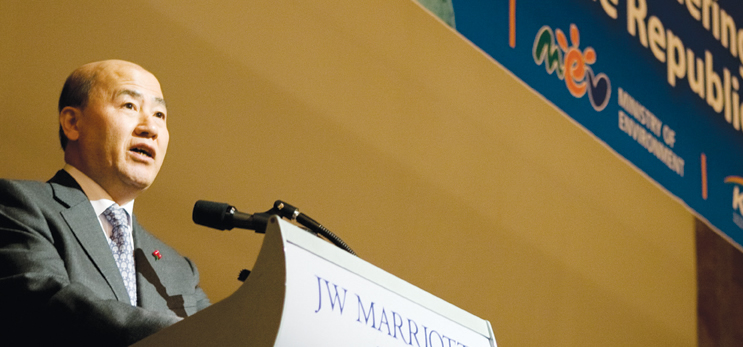 Korea looks to implement green growth initiatives as a means of dealing with the economic downturn in the short term and a move toward a green economy in the long term.
Korea looks to implement green growth initiatives as a means of dealing with the economic downturn in the short term and a move toward a green economy in the long term.
Delivering the opening message at a briefing session on Korea's environmental policies, held at the Marriot Hotel in Seoul on Jan. 30, Minister of Environment Lee Maanee said, "In 2009, the Ministry of Environment will exert its utmost effort to realize the vision of 'green growth' by promoting its green growth plans such as nurturing the world's top 10 green technologies and industries, and meet the challenges of climate change and the economic downturn through 'Green New Deal' policies." Since his inauguration, the Lee Myung-bak government has paid much attention to climate change issues and has designated the response to climate change as one of the national tasks. In particular, President Lee set "Low Carbon, Green Growth" as a new national vision and announced that green growth is a new national development paradigm that creates new growth engines and jobs with green technology and clean energy. In addition, Korea has put forward the "Green New Deal" initiatives that combine green growth strategies with job creation in order to overcome the slumping economic crisis, the minister said.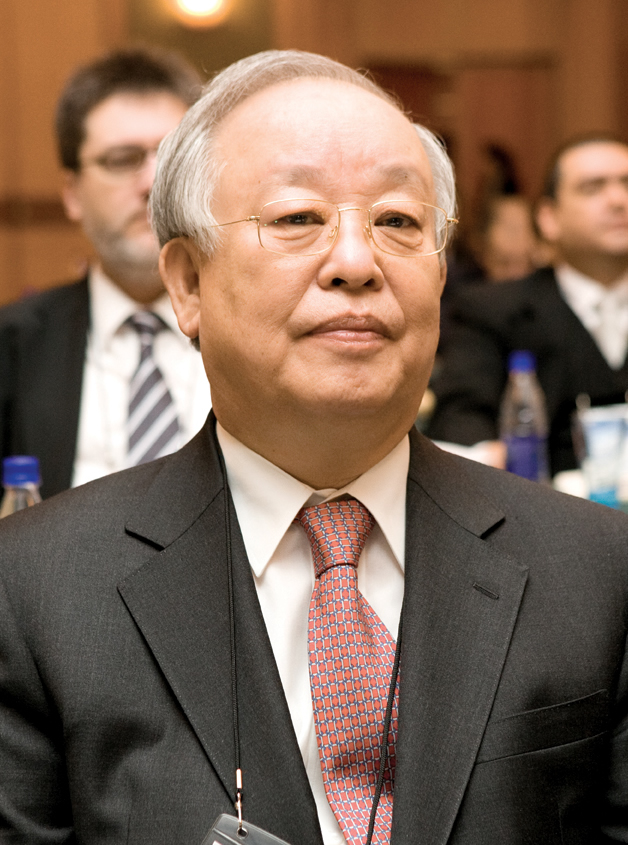
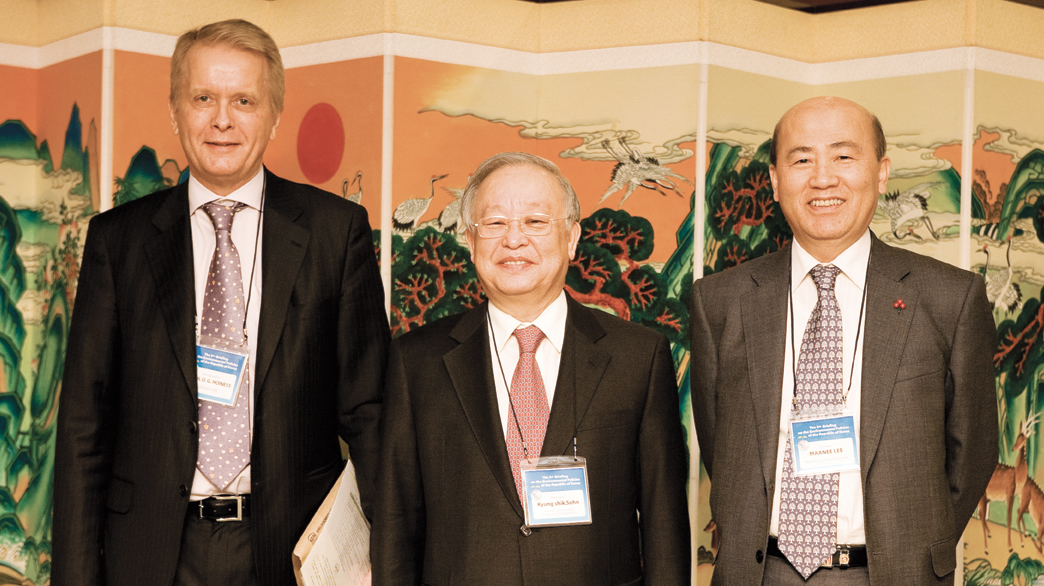
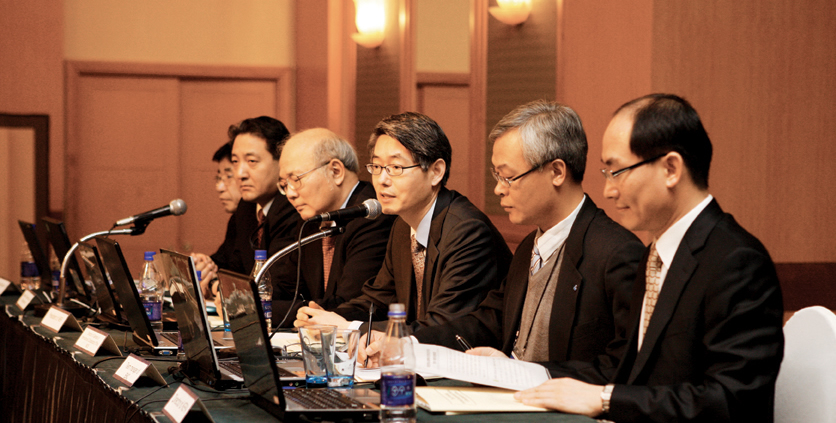
"Such projects would provide good opportunities to deal with the economic downturn in the short term, while giving momentum for the Korean economy to move toward a green economy in the long term," Minister Lee said.
The minister said, "Korea will intensify its efforts toward a low carbon society by strengthening its capacity to respond to climate change and facilitating a carbon market system such as a carbon exchange and Clean Development Mechanism (CDM) projects." He also said, "We are committed to setting up Korea's mid-term target for greenhouse gas reduction in consideration of its circumstances and capabilities, and to enhancing both bilateral and multilateral environmental cooperation in order to prepare for post-2012 climate change." Sohn Kyung-shik, chairman of the Korea Chamber of Commerce and Industry (KCCI) and concurrently chairman of the Korea Environmental Preservation Association, said in a welcoming address, "Environmental issues, including climate change, are critical for the future of mankind and the earth. It is not only a local issued confined to a certain region or state, but also an urgent issue that all members of the international society need to address together. Growth that comes at the sacrifice of the natural environment is no longer a viable option in promoting sustainable economic development." He continued, "Against this backdrop, many countries have come up with a 'Green Growth' strategy, aimed at developing new technologies and creating new business opportunities and more jobs." The briefing session attracted more than 100 people, including 40 ambassadors and other diplomatic envoys. It was the fifth one, organized by the Ministry of Environment (MOE), designed to enhance Korea's national brand as a leading environmental country and to shore up collaboration among nations by publicizing Korea's environmental policies in 2009, ministry officials said.
In Presentation I: Environment Policy for 2009 for Low Carbon Green Growth, Kim Chan-woo, director general of the International Cooperation Office at the MOE, said, "The government policy direction and goal is to make Korea an environmentally advanced country through low carbon and green growth as well as to overcome the economic downturn through a 'Green New Deal' by developing and fostering new growth engines." In an effort to make rivers across the nation healthier, the government will establish 1,123 sewerage sites and improve 2,274 km. of sewage pipelines, pursue a zero non-point source pollution project to block polluted run-off, and collect and treat wastes from streams, lakes, marshes and estuaries, Kim said. In order to restore the ecological health of streams, he said the government will pursue the ecological restoration of 100 streams nationwide and conduct a "Cheonggyecheon+20 Project," a project to take urban streams that are currently covered with cement and revitalize them to look more like Cheonggyecheon in downtown Seoul.
Government ministries and agencies will implement "eco-towns" as model cities for green growth while promoting eco-tourism across the world to revitalize local economies through green growth, he said.
In Presentation II: Biological Resources for the 21st Century, Park Cheong-wook, president of the National Institute of Biological Resources (NIBR), spoke about its roles in the management of biological resources in Korea.
In Presentation III: Climate Change and Korea's response, Park Chum-kyoo, director of the Climate Change Policy Division at the MOE, said the government developed a "Comprehensive Plan for Combating Climate Change" last September and an action plan last December, calling for the adoption of concepts of carbon intensity and eco-efficiency, increasing the renewable energy share from 2 percent to 11 percent by 2030 and making Korea the world's fourth "green car" manufacturing country. "Korea launched the 'Green Start Movement,' a national campaign for greenhouse gas reductions in which citizens make efforts to reduce emissions in their daily lives in order to transform society into a low-carbon one for green growth. The nation will present the low-carbon living standard, promote the "Green Transport Movement" and establish "Climate Change Week" during this year," he said.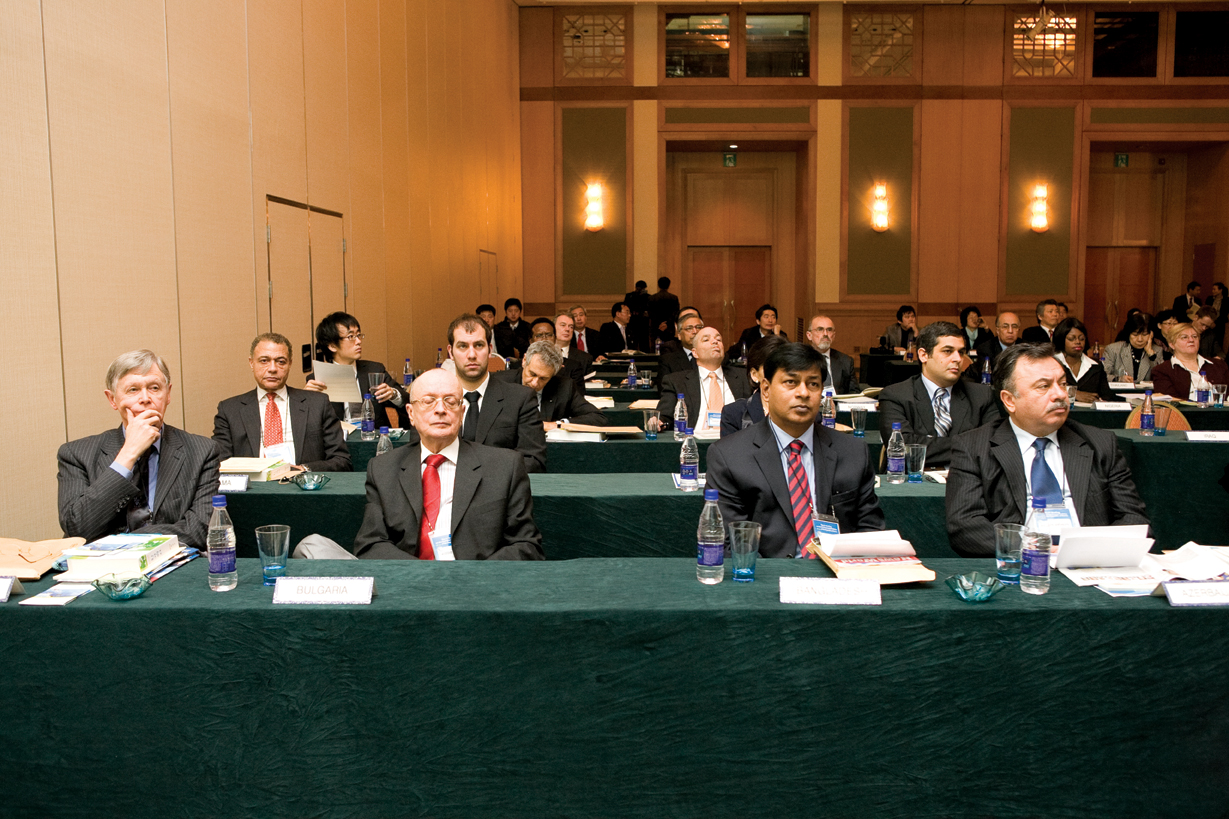
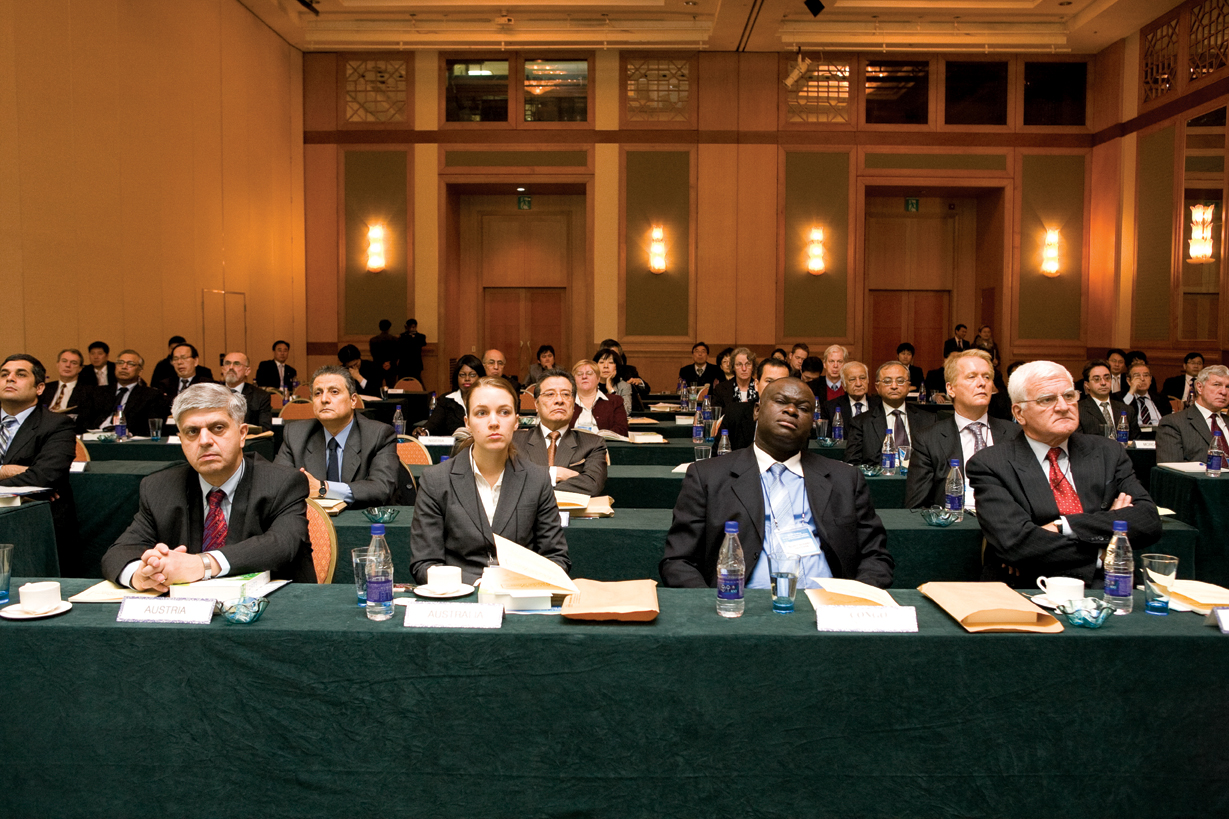
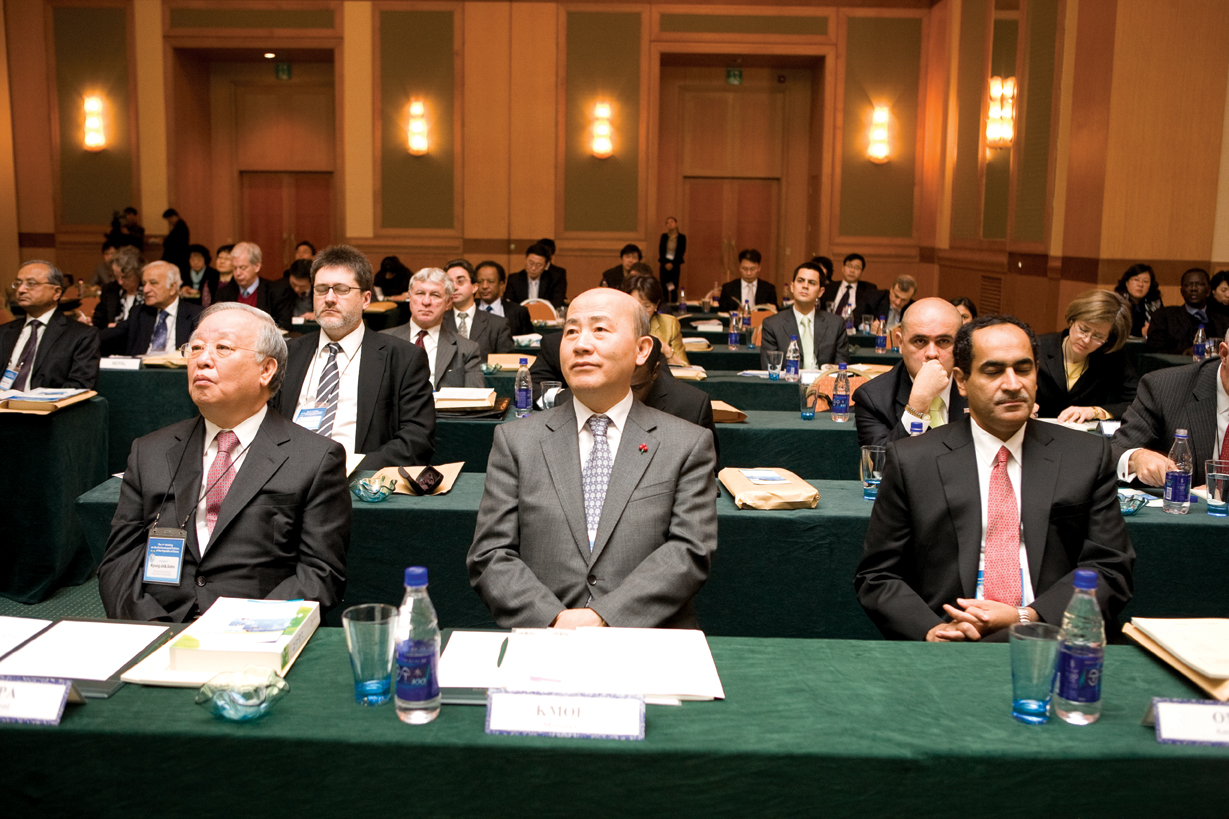
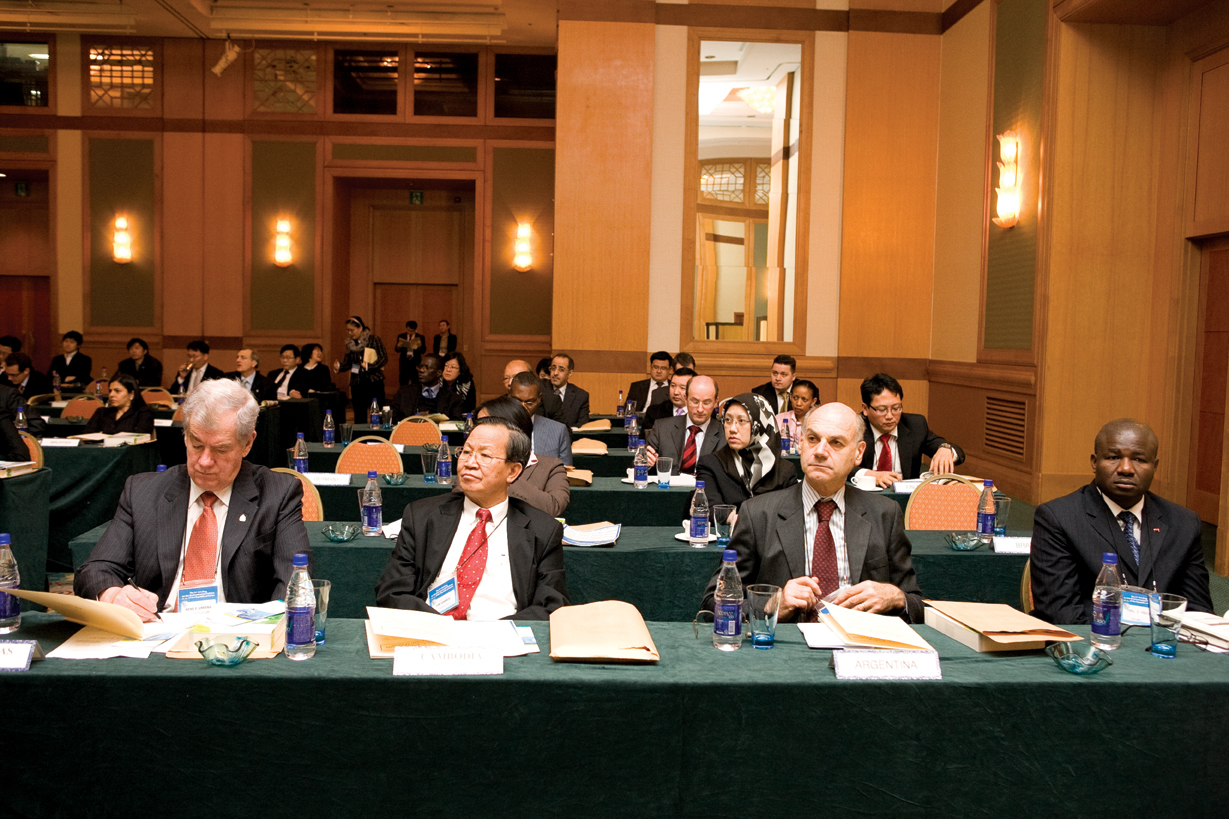
In Presentation IV: Master Plan for Waste & Biomass-to-Energy, Lee Jong-yeon, a team manager of the Environmental Management Corp., spoke about policies on the utilization of all waste and biomass from households and industries to produce energy.
In Presentation V: Environmental R&D Programs in Korea, Lee Seong-poong, technical expert at the Korea Institute of Environmental Science & Technology (KIEST), explained Korea's environmental R&D activities and its "Eco-Technopia 21 Project," designed to develop core next-generation environmental technologies.
In Presentation VI: Environmental Technology Exchange through Exhibition, Lee Tae-young, director of the Korea Environmental Preservation Association (KEPA), introduced ENVEX 2009, the largest environmental exhibition in Korea, which will be held in June with 260 companies from over 20 countries expected to participate. nw
Minister of Environment Lee Maanee delivers the opening message at a briefing session of the Korean government's environmental policies, held at the Marriot Hotel in Seoul on Jan. 30.
(clockwise) Scenes of a briefing session of Korea's environment government policies,; Sohn Kyung-shik, chairman of the Korea Chamber of Commerce and Industry and concurrently chairman of the Korea Environmental Preservation Association, flanked by Environment Minister Lee Maanee and a foreign participant; the speakers of the session, including Kim Chan-woo, director general of international cooperation at the MOE,; and KCCI Chairman Sohn, who listens to a presentation of the session that attracted about 100 people, including 40 diplomatic envoys.
3Fl, 292-47, Shindang 6-dong, Chung-gu, Seoul, Korea 100-456
Tel : 82-2-2235-6114 / Fax : 82-2-2235-0799